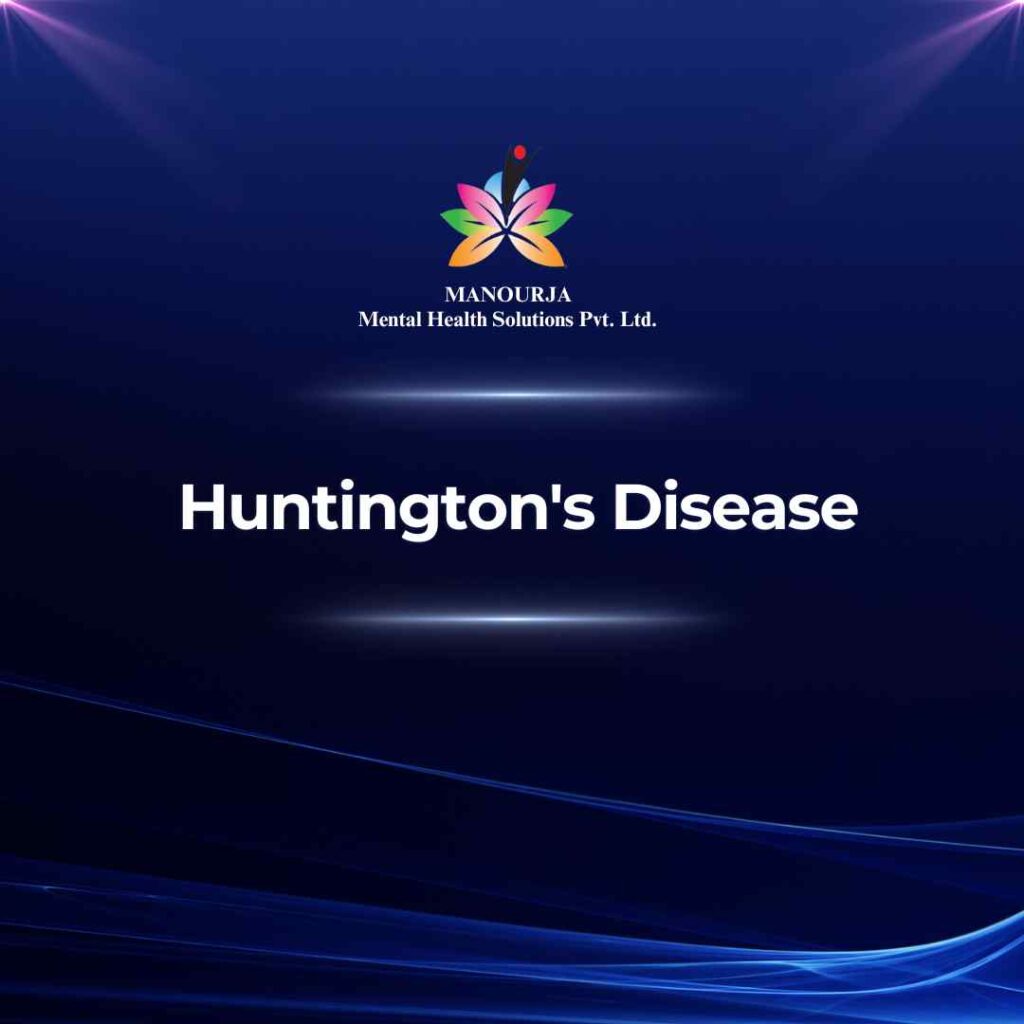Huntington’s Disease

Huntington’s Disease (HD) is a progressive, hereditary neurodegenerative disorder that causes the gradual degeneration of nerve cells in the brain. It affects a person’s physical movements, cognitive abilities, and mental health. The disease is named after George Huntington, the physician who first described it in 1872.
Key Aspects
Genetic Cause: Huntington’s Disease is caused by a genetic mutation in the HTT gene on chromosome 4. This gene is responsible for producing a protein called huntingtin. The mutation involves an abnormal repetition of the CAG nucleotide sequence within the gene. Normally, this sequence repeats 10-35 times, but in individuals with HD, it repeats 36-120 times or more. The larger the number of repeats, the earlier and more severe the onset of the disease.
Inheritance Pattern: HD is inherited in an autosomal dominant pattern. This means that if one parent carries the defective gene, there is a 50% chance that each child will inherit the gene and develop the disease. Both males and females are equally affected.
Symptoms
The symptoms of Huntington’s Disease can be categorized into three main areas:
- Motor Symptoms: These include involuntary jerking or writhing movements (chorea), muscle problems such as rigidity or muscle contracture (dystonia), slow or abnormal eye movements, and difficulties with speech and swallowing.
- Cognitive Symptoms: Cognitive decline can manifest as difficulty in organizing, prioritizing, or focusing on tasks, lack of flexibility or the tendency to get stuck on a thought or action (perseveration), and problems with learning new information.
- Psychiatric Symptoms: These may include depression, apathy, social withdrawal, obsessive-compulsive behaviors, and, in some cases, psychosis.
Disease Progression
HD symptoms typically appear between the ages of 30 and 50, but they can also occur earlier (juvenile Huntington’s Disease) or later in life. The disease progresses over 10 to 25 years, with symptoms worsening over time. As the disease advances, individuals become increasingly dependent on others for care.
Diagnosis
Diagnosis of Huntington’s Disease is based on a combination of clinical evaluation, family history, and genetic testing. Genetic testing can confirm the presence of the expanded CAG repeat in the HTT gene.
Management and Treatment
While there is currently no cure for Huntington’s Disease, treatment focuses on managing symptoms and improving quality of life. Medications can help control movement disorders and psychiatric symptoms. Physical therapy, occupational therapy, and speech therapy can aid in maintaining functional abilities for as long as possible. Supportive care from a multidisciplinary team is crucial.
Research and Future Directions
Ongoing research aims to better understand the mechanisms of HD and develop treatments that can slow or halt its progression. Experimental approaches include gene therapy, stem cell therapy, and drugs targeting the underlying genetic mutation or its effects on brain cells.
In conclusion, Huntington’s Disease is a devastating neurodegenerative disorder with a clear genetic cause and complex symptomatology. Advances in research hold promise for future treatments that may one day significantly alter the course of the disease, providing hope for affected individuals and their families.
At MANOURJA, we believe in the transformative power of counseling. Our experienced therapists offer a safe and supportive space where you can explore your thoughts, emotions, and challenges. Through personalized counselling sessions, we’ll work together to develop coping strategies, build resilience, and achieve lasting positive change. Discover the path to a healthier, happier you with MANOURJA counselling services.
MANOURJA Rehabilitation Services
At MANOURJA, we’re dedicated to helping you in rebuild your life, after difficult times. Our rehabilitation services focus on understanding what you need to move forward, whether you’re recovering from addiction, trauma, or any psychological – social challenges. We create personalized plans, that are all about helping you, regain your strength and find hope again. With a caring team by your side, you’ll have the support to make real progress and take steps toward a brighter, healthier future.
